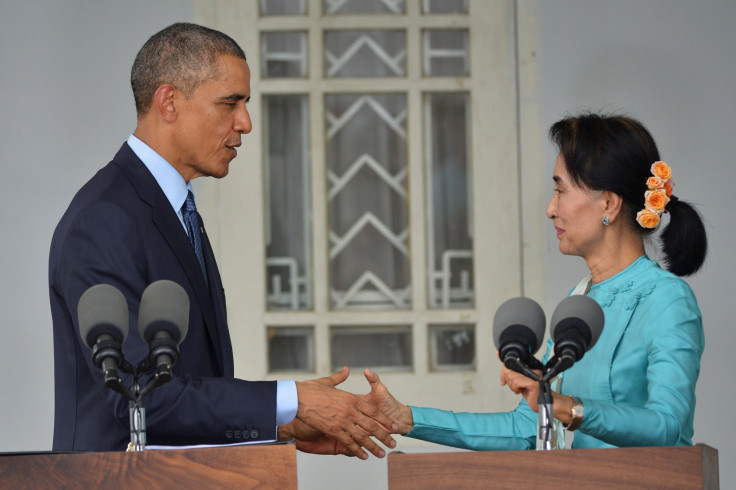US Eases Economic Sanctions On Myanmar, Drops 10 State-Owned Companies From Blacklist

The Obama administration announced Tuesday that the United States is lifting some economic sanctions imposed on Myanmar. This move comes as a bid to show support for the newly elected democratic government, after years of military rule.
In a statement, the U.S. Department of the Treasury said it has removed Myanmar's seven state-owned enterprises, operating in areas of timber and mining, and three state-owned banks from the blacklist, increasing the ease of doing business in the Southeast Asian country. This move comes ahead of U.S. Secretary of State John Kerry's visit to Myanmar Sunday.
“Burma [Myanmar] has reached a historic milestone over the last year by holding competitive elections and peacefully transitioning to a democratically-elected government. Our actions today demonstrate our strong support for this political and economic progress while continuing to pressure designated persons in Burma to change their behavior,” Adam J. Szubin, acting under secretary for terrorism and financial intelligence, said in the statement.
According to Reuters, this is a welcome move by giants like General Electric, Western Union, Gap, Coca-Cola and others that have already set up business in Myanmar.
At the same time, the U.S. has added six companies in the country to the blacklist. These are owned 50 percent or more by Steven Law, son of drug trafficker Lo Hsing Han, and Asia World, Myanmar’s largest conglomerate where Law serves as managing director. Law was blacklisted for his alleged ties to the military.
Peter Harrell, former senior State Department official and now a senior adjunct fellow at the Center for a New American Security, told Reuters: "I think this is a significant step. I don't think it's a massive step. The practical reality is if you can't do business with military-owned companies, chunks of the economy are going to remain off limits."
According to the New York Times, Benjamin J. Rhodes, the U.S. president’s deputy national security advisor for strategic communication, referred to the overtures toward Myanmar as one of President Barack Obama’s most significant foreign policy measures. “We have to demonstrate that there are dividends for people who go down this road. And if we’re not there for those people when they make the right choices, that won’t just be a problem for Myanmar,” he said.
However, more than 100 individuals and companies are still on Washington’s sanctions list and according to BBC, the military has a significant hold on businesses in the country.
© Copyright IBTimes 2024. All rights reserved.












